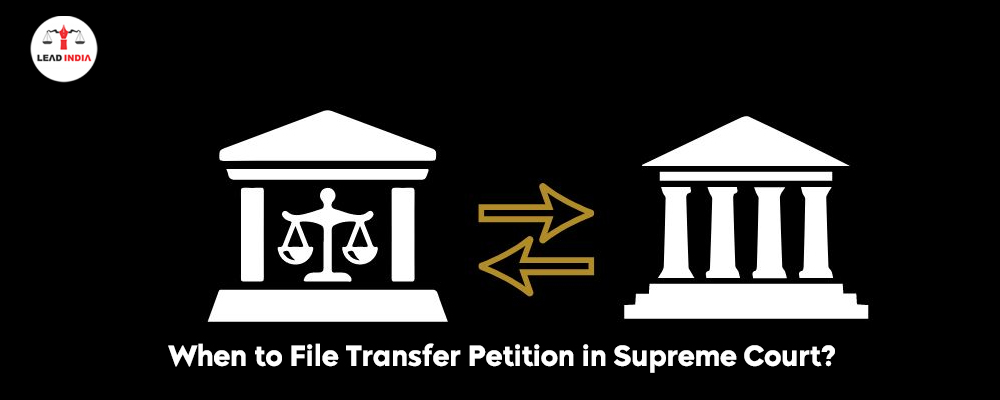The Hon’ble Supreme Court may transfer any case, appeal, or other proceedings from a High Court or other civil court in one State to a High Court or other civil court in any other State in accordance with Section 25 of the Civil Procedure Code or under Section 406 of Criminal Procedure Code.
If the Supreme Court is convinced that an order under this Section is necessary for the purposes of justice, it may exercise this authority. Thus, the Supreme Court has broad authority to mandate a transfer if it determines that doing so is necessary to further the interests of justice.
Filing of Transfer Petition in Supreme Court: When to File?
The primary goal of all procedural laws is to deliver impartial and equitable justice. The regulations regarding case transfer are found in India’s Criminal Procedure Code, 1973, as well as the Civil Procedure Code, 1908.
- The Civil Procedure Code’s Sections 22 to 25 outline the rules governing the moving and withdrawing of lawsuits, appeals, and other legal actions from one court to another.
- The Criminal Procedure Code’s Sections 406 to 408 set down the rules for case transfers and appeals.
Need A Legal Advice
The internet is not a lawyer and neither are you. Talk to a real lawyer about your legal issue

Reasons for Transfer Petition in Supreme Court under Civil Procedure Code
Inconvenience in the Part of Plaintiff
In general, the plaintiff is free to choose the forum in which to file a lawsuit in many courts. The plaintiff’s right cannot be restricted or tampered with, but the superior courts may manage it.
Inconvenience in the Part of Defendant
In situations where a lawsuit may be filed in more than one court, the defendant may also file an application for the matter to be transferred, in accordance with section 22 of the Code of Civil Procedure, 1908. In all situations where issues are settled, the defendant may ask to have the suit transferred to a different court at or before the settlement of issues, provided that notice is given to the other party or parties as soon as feasible.
Transfer Avoiding Unnecessary Expenses
The party filing the transfer petition may also include justifications for why the parties concerned would save money and time by avoiding needless costs and delays as a result of the transfer. Usually, when matrimonial troubles are involved, this occurs.
Transfer of Case to get Satisfactory Judgment
In addition to demonstrating proper grounds that would provide a solid foundation for the case to be transferred, it is crucial that the party seeking justice in court receive an acceptable ruling.
Reasons for Transfer Petition in Supreme Court under Criminal Procedure Code
Transfer of Case to Ensure Fair Trial
If there are good reasons to think that the accused person won’t receive a fair trial from a certain judge, the accused person might request that the case be transferred to a different court.
General Convenience for Parties
The parties and witnesses must be present during the trial in order to guarantee a fair trial, as every stage of the process is crucial. A court may consider a transfer petition if it is filed with the intention of serving the parties, witnesses, and their mutual convenience.
Facilitating Justice
The courts must do everything in their power to help the individual who is seeking justice. Therefore, the court grants the party’s transfer petition if it seems to be in the best interests of justice to move the matter from one court to another.
The Indian laws have a very significant and valuable provision for the transfer of cases from one court to another. The party requesting the transfer must have good, reasonable grounds for obtaining the desired outcome and may only utilize this important instrument to further their needs for justice.
One can talk to a lawyer from Lead India for any kind of legal support. In India, free legal advice online can be obtained at Lead India. Along with receiving free legal advice online, one can also ask questions to the experts online free through Lead India.



